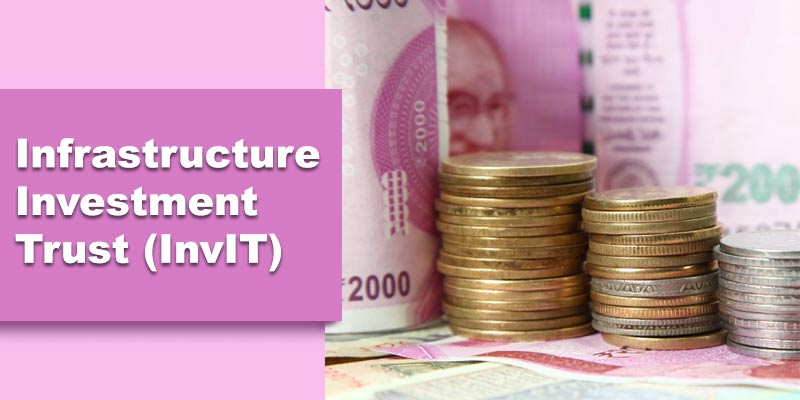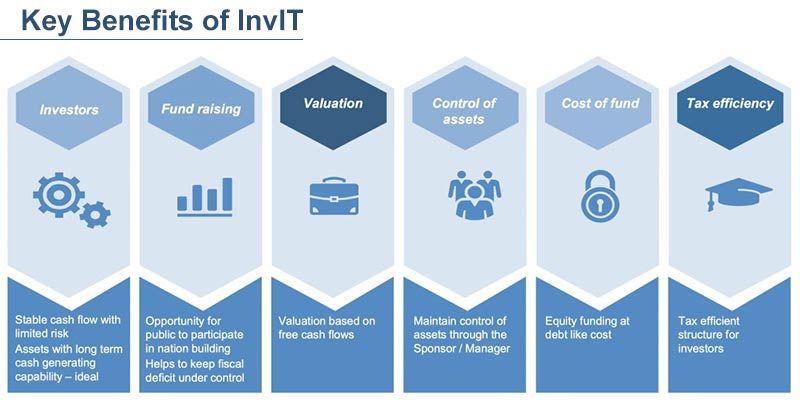- India
- Oct 19
Explainer / What is Infrastructure Investment Trust (InvIT)?
• The National Highways Infra Trust (NHAI InvIT) is looking to raise an additional Rs 3,800 crore funds, Road Transport and Highways Minister Nitin Gadkari said.
• NHAI InvIT is the infrastructure investment trust sponsored by the National Highway Authority of India (NHAI) to support the government’s National Monetisation Pipeline (NMP).
• NHAI has the largest share under the National Monetisation Pipeline as road assets worth Rs 1.60 lakh crore will be monetised over four years till FY25 under the NMP plan announced by Finance Minister Nirmala Sitharaman in August 2021.
• Gadkari said the Infrastructure Investment Trusts (InvITs), so far, has raised more than Rs 8,000 crore from foreign and Indian institutional investors.
What is Infrastructure Investment Trust (InvIT)?
• Infrastructure Investment Trusts (InvITs) are instruments on the pattern of mutual funds, designed to pool money from investors and invest the amount in assets that will provide cash flows over a period of time.
• InvIT is an innovative trust-based financial instrument, which enables participation in infrastructure financing through a stable and liquid instrument.
• InvITs provide an opportunity to invest in infrastructure assets with predictable cash flows and dividends.
• InvITs have been introduced in India in 2014 and are employed by infrastructure asset owners to pool in money from a diverse set of investors against pay-out of cash flow generated by the assets on a periodic basis.
• InvITs are established as trusts under the Indian Trust Act, 1882 and regulated under the SEBI (Infrastructure Investment Trusts) Regulations, 2014.
• India has seen a number of InvIT transactions over the last 4-5 years.
• Since the introduction of InvIT regulations, bulk of the InvITs have been sponsored by private sector infrastructure developers.
InvITs – Similar instruments globally
• Globally private institutional funds have complemented debt funds in financing infrastructure investment. There has been a global consensus on the potential for tapping large institutional investors (including pension funds, sovereign wealth funds, etc) as well as retail investors towards infrastructure asset class, especially with lower risk levels (brownfield assets).
• Two specific instruments seen in the US which have been fairly successful in tapping institutional investors into infrastructure assets are Yieldcos and Master Limited Partnerships (MLPs).
How does it work?
• Under an InvIT transaction, infrastructure asset owners transfer multiple revenue generating asset special purpose vehicles (SPVs) through holding company (holdco) or otherwise to a trust which then issues units to investors for raising money.
• The upfront money so raised is utilised by the developers for creation of new greenfield assets as also for repayment of debt which enables availability of capital with lenders for investment/lending to new projects.
• The investors, in lieu of invested money, receive a share of Net Distributable Cash Flows (NDCF – similar to the dividend pay-outs) on a periodic basis, commensurate with their unit holding in the Trust.
• Improved yields for the unit holders can be insured, by adding revenue-generating projects and expanding its portfolio.
Key stakeholders
• Under this structure, the public asset owner (sponsor) creates an independent trust and transfers the ownership/ rights of the public assets to the same. Investors (unit holders) are the beneficiaries of the trust.
• The sponsor: The sponsor is the public asset owner (for public-owned assets) which sets up the InvIT with the objective to monetise its assets. In case of PPP projects, the sponsor is the infrastructure developer or a SPV holding the concession agreement.
• The trustee: The trustee means a person who holds the InvIT assets in trust for the benefit of the unit holders, in accordance with extant regulations.
• The unit holders: The unit holders are the investors who subscribe to the units of the InvIT. The unit holders are the eventual beneficiaries of the asset.
• The investment manager: The investment manager is responsible for taking investment decisions in the interest of unit holders including addition of new assets / sale of existing assets, leverage, etc.
• The project manager: The project manager brings in the operational expertise of managing the infrastructure assets as per the interest of the unit holders.
• Other key stakeholders incidental to the InvIT registration and issuance process include valuer, auditors, merchant bankers, registrar & transfer agent, banks, registrar to the issue, credit rating agencies and depository participants.
Manorama Yearbook app is now available on Google Play Store and iOS App Store



